Prominent Ugandan lawmakers from 1967
In 1967, five years after Uganda gained independence from Britain, the Government of Milton Obote hosted the 13th Commonwealth Parliamentary summit.
64TH COMMONWEALTH PARLIAMENTARY CONFERENCE 2019
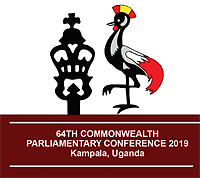
In 1967, five years after Uganda gained independence from Britain, the Government of Milton Obote hosted the 13th Commonwealth Parliamentary summit. This was a year after the 1966 Buganda crisis and the ripping up of the 1962 independence constitution as the army took centre stage in the country's politics. Uganda hosted the summit at a time of great introspection. As Uganda prepares to host the 64th Commonwealth Parliamentary Conference, Moses Walubiri profiles some Ugandan MPs who graced the 13th summit
______________________________
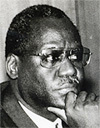
William Kalema
Kalema was a lawmaker representing Kome in 1967. A former teacher at King's College Budo before he ventured into politics, Kalema was married to Rhoda Kalema, a daughter to one of Buganda's most consequential Prime Ministers, Nsibirwa. When Amin ousted Obote in 1971, Kalema and Henry Kyemba, a private secretary to the president, were in Singapore with Obote. As Obote sought refuge in Tanzania, Kalema joined Kyemba and other government technocrats whom Amin assured safety. But Kalema was soon abducted and never to be seen to-date.
______________________________
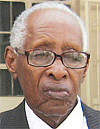
Boniface Byanyima
Byanyima was representing Ankole North-East at the time of the 13th CPC in 1967. A former teacher at Ntare School Mbarara, Byanyima served as DP national chairman for a long time. When Basil Bataringaya crossed to UPC with a number of DP lawmakers as Obote held out a carrot to them, Byanyima was one of the remnants. The father of former Oxfam boss, Winnie Byanyima, Boniface was one of the few high profile politicians who decided to tough it out during Amin's eight-year reign of terror even when many Ugandan elites were washed up on foreign shores to escape his talons.
______________________________
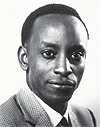
Grace Ibingira
At the time of the 13th CPC, Ibingira, a onetime Attorney General, was representing Ankole West. But it's highly unlikely that Ibingira ever attended any event despite being a lawmaker. At the time, Obote had caused his arrest and ‘deportation' to Karamoja by invoking a draconian colonial law that permitted the removal of undesirable persons. Ibingira, a secretary general of the ruling UPC, had been caught up in a power struggle in what political pundits believed was an unsuccessful attempt to oust Obote from the party leadership. During his time as Attorney General, Ibingira supported the detention without trial law which Obote used to good effect to keep him on a leash when the pair fell out.
______________________________
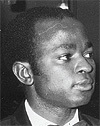
John Kakonge
Another former secretary general of UPC must have had the ears of the most powerful man in the land — Obote. Kakonge who later got into a tango with Ibingira for control of UPC as secretary general was a specially elected member. Ibingira convinced Obote that Kakonge, a leftist posed a threat to his position as party chairman and head of state. This meant that he had been nominated by Obote. When he lost his position to Ibingira, Kakonge fizzled out of national politics.
______________________________
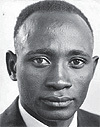
Basil Bataringaya
A former minister in Obote's Government and one time Leader of Opposition in Parliament, Bataringaya was a representative for Ankole North-West. A former member of the Democratic Party (DP), Bataringaya is known for leading a number of members of his party who crossed the floor and joined Uganda People's Congress as Obote emasculated opposition to his government in the 1960s. Obote promptly appointed him minister. However, when Obote was ousted in January 1971, Bataringaya was among the political luminaries murdered by Idi Amin.
______________________________
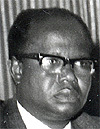
Shaban Nkutu
Nkutu, a cousin to the third deputy Prime Minister, Kirunda Kivejinja, was representing Busoga South East at the time of the 13th CPC. Nkutu was also a cousin to Uganda's youngest foreign minister, Wanume Kibedi who happened to be Idi Amin's brother in-law. At the time Uganda hosted CPC 52 years ago, Nkutu was a minister in Obote's government. Following Obote's ouster in January 1971, Nkutu chose not to join Ugandan political emigres. He went into business as a private citizen. Perhaps, Nkutu thought his cousin, a sister to Kibedi, then Amin's foreign minister being a First Lady guaranteed him safety. It was never to be. He was abducted in broad day light from his shop in Jinja, screaming and kicking, bundled into a car. He was murdered and buried in an unmarked grave. His remains were recovered more than 40 years later.
______________________________
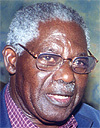
Mathias Ngobi
Ngobi was a lawmaker representing Busoga South in 1967. For several years, Ngobi served as the minister for agriculture in the Obote 1 government. He was one of the five ministers who were arrested on February 23, 1966, as they attended a cabinet meeting at Entebbe. The others were Grace Ibingira, Dr Emanuel Lumu, Balaki Kirya and George Magezi. The five were only released in 1971 by Idi Amin. Ngobi also later served as minister of agriculture in the short lived Binaisa government.
______________________________
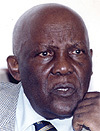
Godfrey Binaisa
In 1967, Binaisa as an Attorney General, was an ex-officio of Parliament. The celebrated lawyer would go on to serve as Uganda's president in the wake of Amin's ouster. Although to many Ugandans Binaisa is synonymous with the the 1966 pigeon-hole constitution, to those in the legal fraternity, the former Attorney General is remembered for his novel arguments in the Ex Parte Matovu case. The Ex Parte Matovu case is a decision of the High Court of Uganda in which Hans Kelsen's "General Theory on Law and State" and the Political Question Doctrine were considered in determining the legal validity of Uganda's 1966 Constitution. At a time of limited avenues for research, long before the Internet, it is a testament to Binaisa's grasp of the law and ingenuity that his submission is cited by lawyers whenever the political question doctrine is being adjudicated upon.
______________________________
Other luminaries in that Parliament included Sam Odaka (Jinja North), Adoko Nekyon (Lango South-East), Lumu (Kyadondo North), Abu Mayanja (Kyagwe North-East) and Kalule-Settala (Mengo South). At a time when the general view that getting married and making good wives was the ultimate goal for women, it's not surprising that not a single woman was a member of Uganda's second Parliament.
ALSO RELATED TO THIS STORY
Objectivity defines Speaker Kadaga
Commonwealth meet to sell Kampala
The team behind 64th CPC